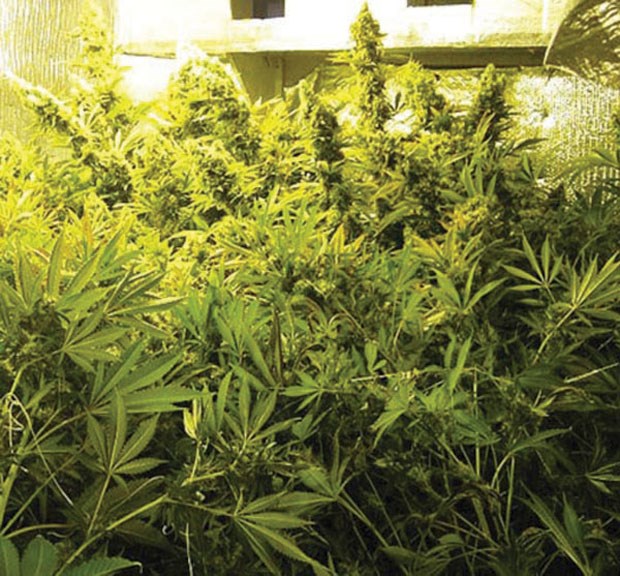Could pot become a big cash crop on Delta farmland? That's one of the many concerns Mayor Lois Jackson has about the federal government's plan to legalize recreational marijuana, something she believes needs a plethora of questions answered before any legislation is finalized.
Jackson was with a delegation of Delta officials in Ottawa last week to meet with federal officials to discuss several issues of concern for the municipality, one being the legalization and regulation of cannabis.
Prior to the trip, Jackson told the Optimist policing, location of marijuana shops as well as just what's in the marijuana that recreational users will smoke are among the many issues that need to be clarified.
Then there's the question of where it can be grown, she said.
"It's a money machine. Everybody is looking at it like that. So then you have to ask: Will they have open growth in fields?"
Last spring, Delta's agricultural advisory committee discussed the issue and was told by planning staff the provincial Agricultural Land Commission has confirmed the production of medical marijuana and its ancillary use would fall under its definition of farming.
As far as someone buying acreages in Delta's Agricultural Land Reserve to start growing recreational weed on a commercial scale, Jackson said it's not clear if or how that would be allowed, but Delta's position is that grow operations, including medical pot, should remain within industrial zones.
"Policing it would probably be a huge problem if it's grown like corn. So these are all questions that haven't been answered yet that I'm aware of. It's much easier to put it in an industrial area as much as you can," she said.
Legalizing recreational marijuana was one of Prime Minister Justin Trudeau's campaign promises in 2015. His government established a task force to make recommendations, which proposed a complete legalization model, although there would be age, personal possession and growing limits for the average user.
Right after Jackson's visit, the Liberal government tabled legislation to end the prohibition on pot.
The issue will be studied in committee and the plan is to legalize marijuana in Canada by July 1, 2018.
Investors are reportedly expecting Canada to have a multi-billion-dollar recreational marijuana market within five years of legalization.
Jackson said regulations need to be enacted at the provincial and municipal levels to control distribution of pot.
Three years ago, Delta passed a bylaw prohibiting the production, storage, research or sale of medical marijuana anywhere in the municipality.
The bylaw initially applied to all zones, including agricultural, although applications to grow the product would be considered on a case-bycase basis.
The idea was to keep any potential operations within industrial zones. Two applications would go on to receive approval, but one has since been abandoned.
The provincial government then struck down part of the bylaw that prohibited the production of medical pot on farmland. So far, there have been no applications to grow medical cannabis on local farms.



